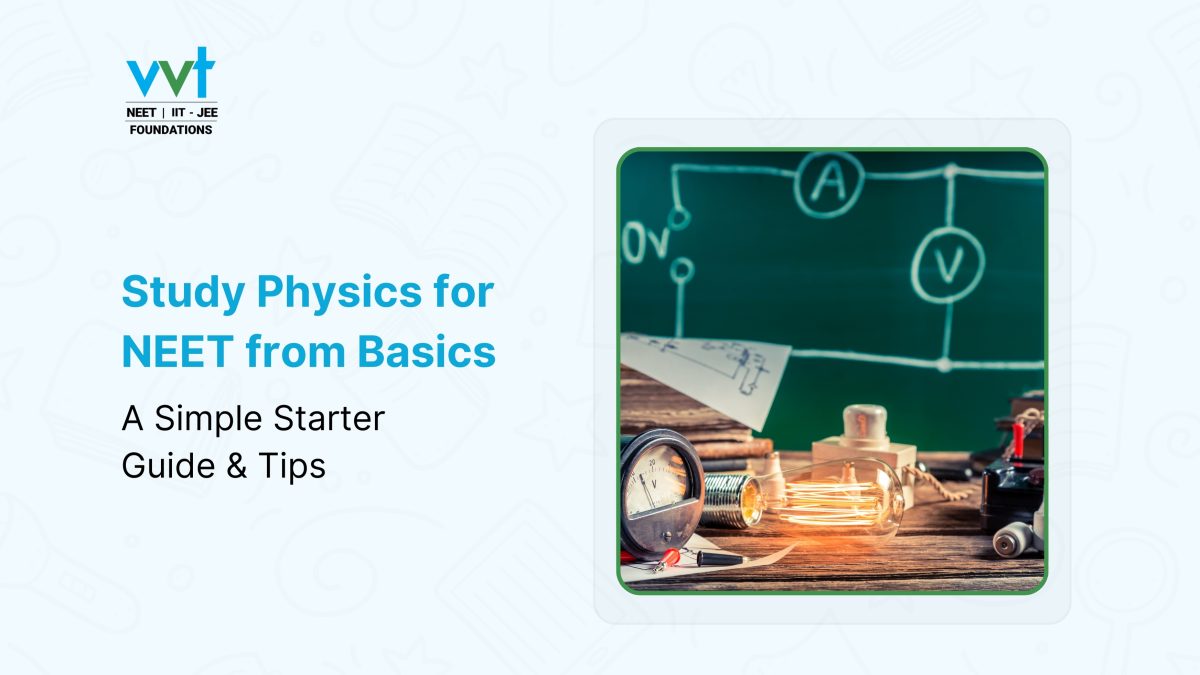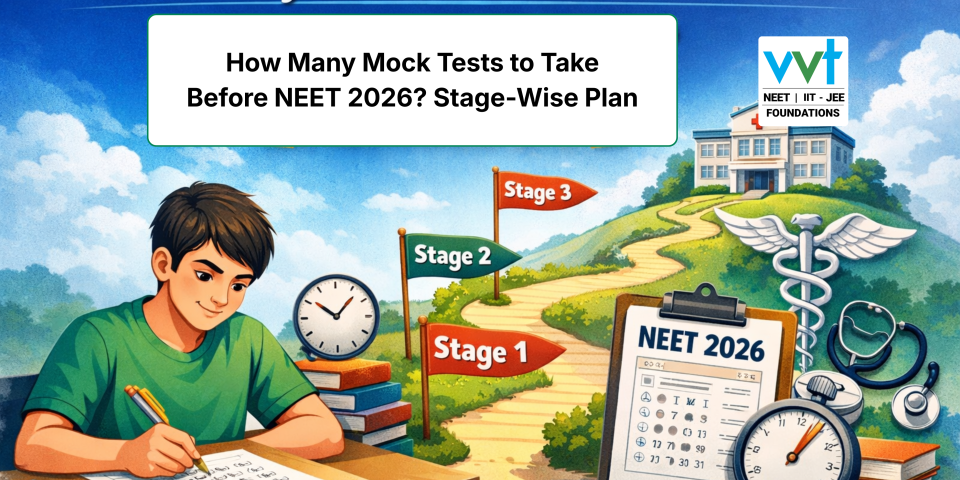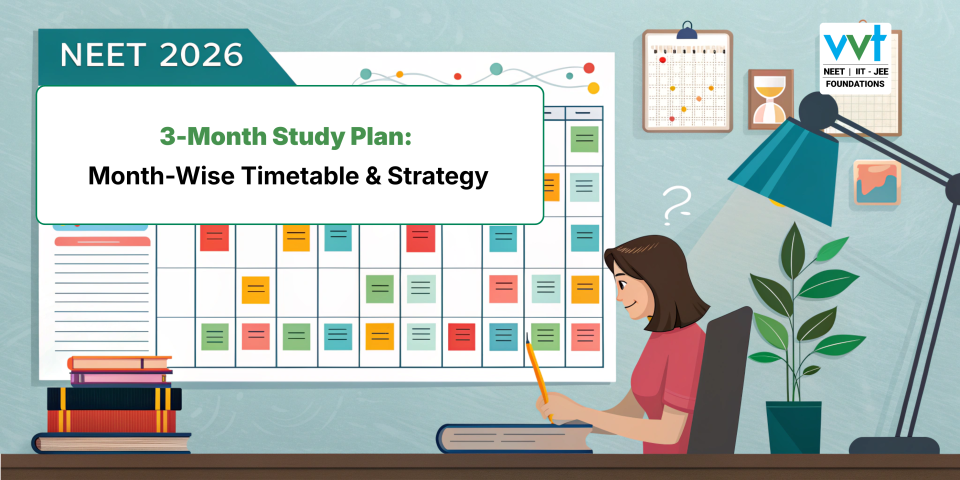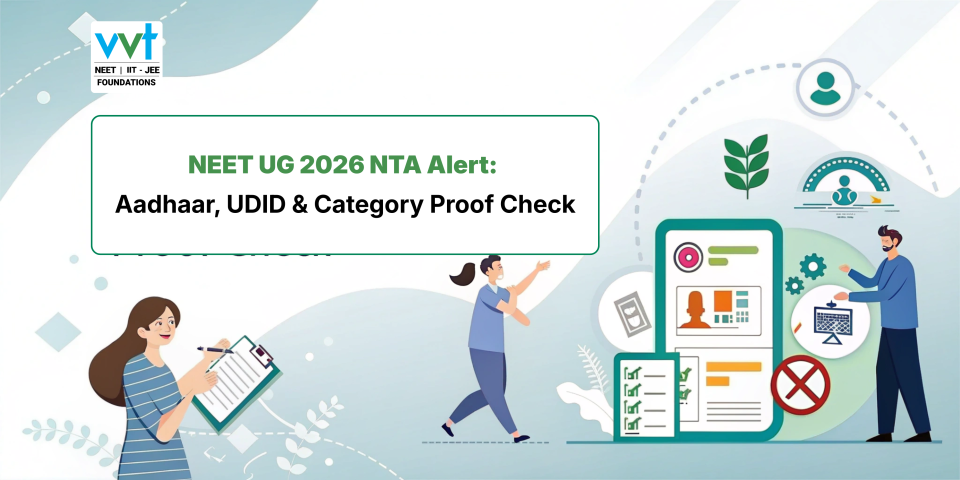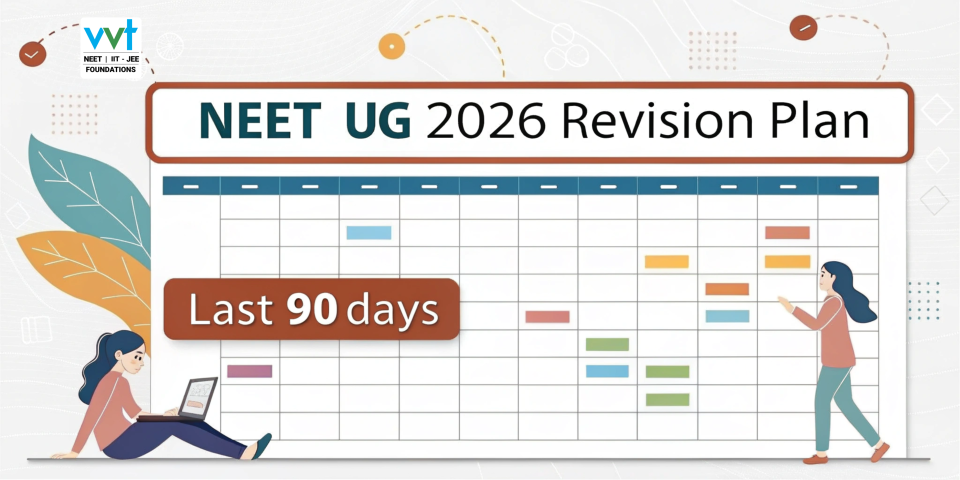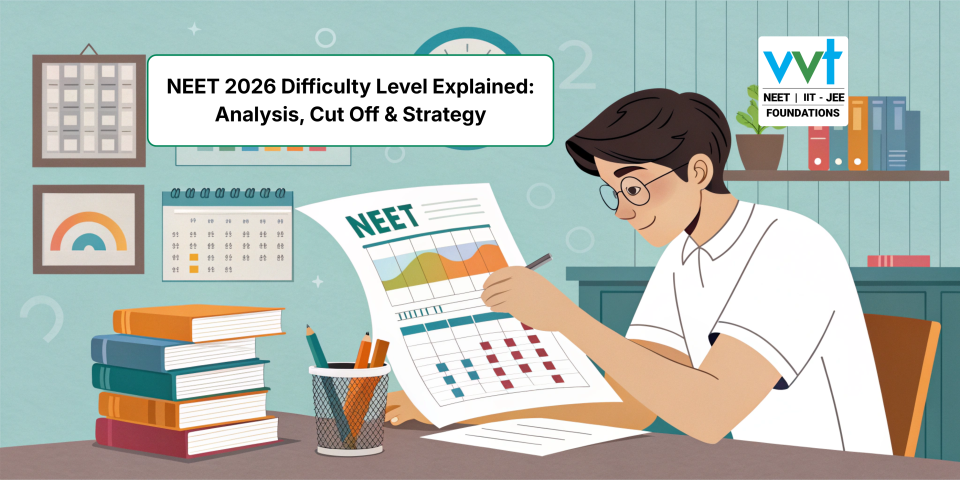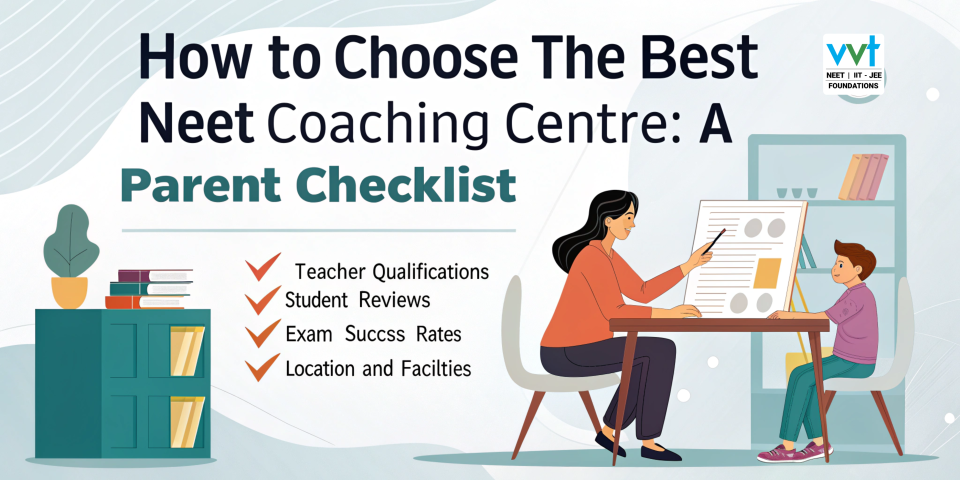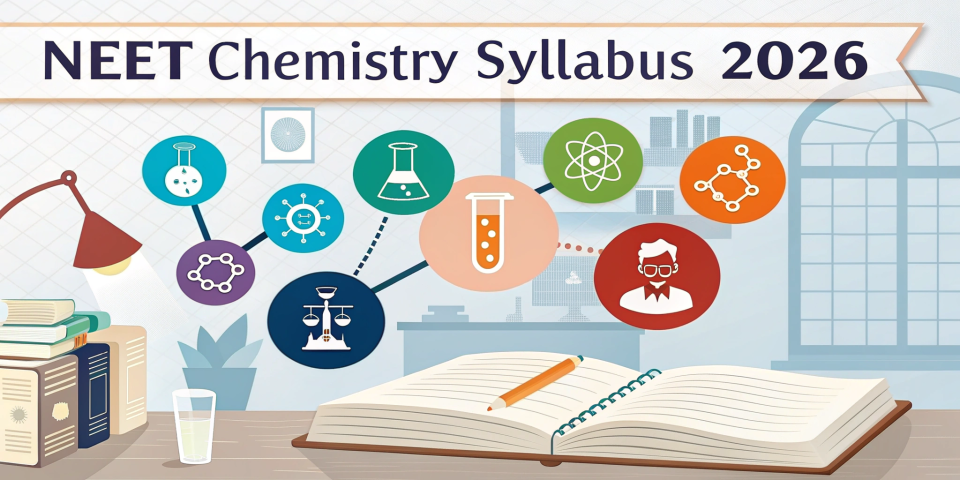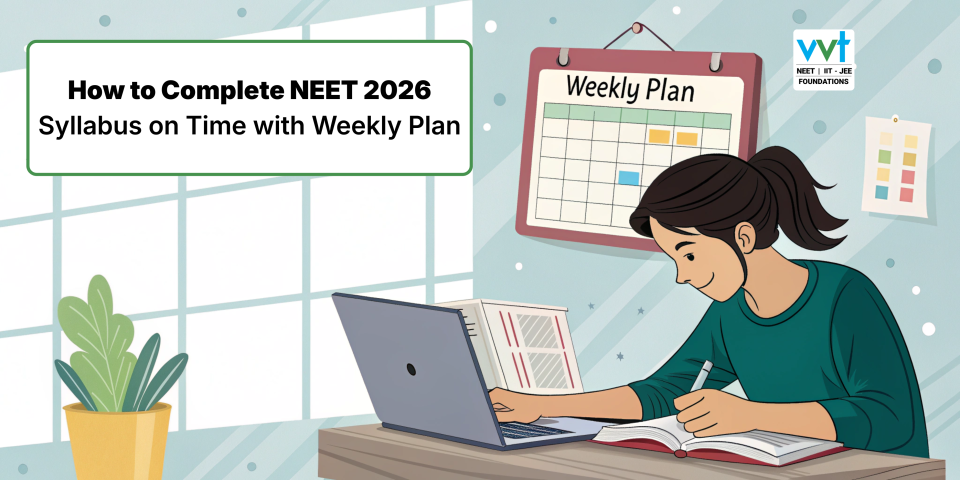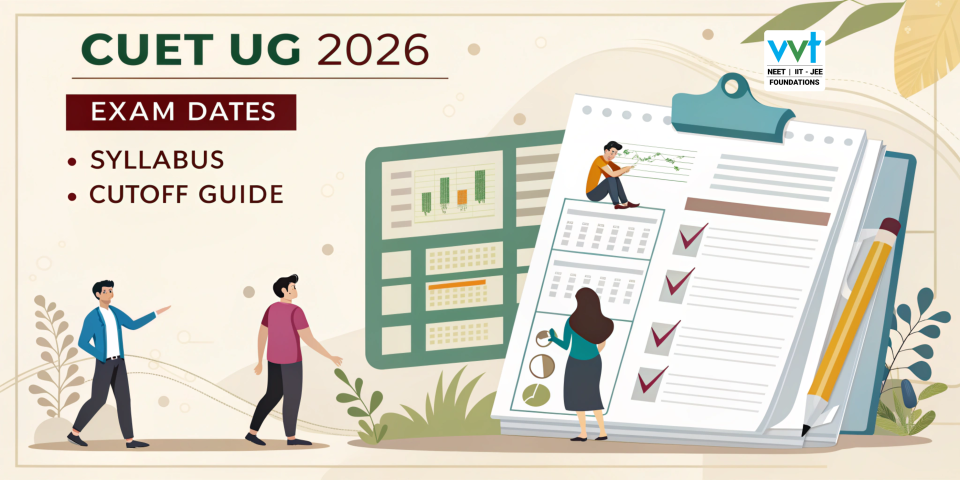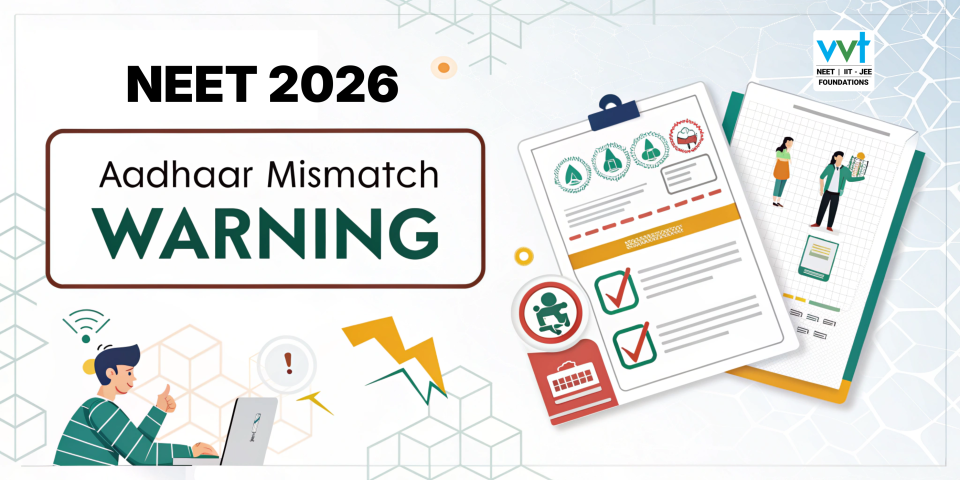
How to Start NEET Preparation After Class 10: A Step-by-Step Guide for Future Doctors
September 26, 2025
NEET 2026 Candidate Login: Simple Steps to Stay Updated and Stress-Free
September 28, 2025How to Study Physics for NEET from the Basics: A Simple Starter Guide
Physics in NEET can feel like a mountain if you’re starting from scratch, no formulas memorized, no problems solved yet. But don’t worry, many toppers began the same way and climbed to 650+ scores by building step by step. For NEET, with 45 Physics questions worth 180 marks (focusing on mechanics and electrostatics, per trends), starting now means turning basics into strengths. At VVT Coaching Centre in Chennai, Tamilnadu, ranked #1 by Times Now, we have helped beginners like you reach medical seats, with our 96.6% success rate and over 1000+ placements through easy tools and support.
This simple guide,We’ll cover foundations, a gentle plan, common mistakes, and how VVT’s features like AI analysis and error exams make physics feel manageable, solving worries like “where do I begin?” or “how do I fix mistakes?” with clear, everyday steps.
First Things First: Get the Physics Basics Down Easy
Starting from zero? Begin with understanding what NEET Physics tests, 50% Class 11 topics like motion and forces, 50% Class 12 like electricity and optics. No need for fancy stuff, focus on NCERT books, as 70-80% questions come straight from there.
Key tip: Learn concepts, not just memorize. For example, understand why objects fall (gravity) before jumping to equations. Watch simple videos (free on YouTube) or join beginner classes. VVT’s Foundation course for Class 11 starters explains this in easy ways, with AI spotting if you’re weak on basics like units.
Common problem: Feeling lost in jargon. Solution: Break chapters into small bits, spend 1 week per topic, drawing mind maps for connections.
A Gentle Study Plan: Build Up Without Burnout
No rush,aim for 4-6 hours daily at first, gradually increase up as you go.
For beginners, spend 2 months on Class 11 basics, then mix Class 12.
Include daily practice: 10-20 questions to apply what you learn.
Here’s a 6-month starter plan, with VVT twists for extra help.
| Month | Focus Areas (Key Chapters) | Daily Hours & Activities | VVT Support to Make It Easier |
| 1-2 (Basics) | Motion, Forces, Work-Energy (Class 11) | 4 hours: Read NCERT (2 hrs), notes (1 hr), 10 questions (1 hr) | AI summaries in our app for quick reads |
| 3-4 (Build) | Electricity, Magnetism (Class 12) | 5 hours: Concepts + examples (3 hrs), PYQs (2 hrs) | Error exams point out mistakes then remedy classes fix them |
| 5-6 (Practice) | Optics, Modern Physics (mix) | 6 hours: Mocks (2 hrs), analysis (2 hrs), revise (2 hrs) | Weekly full mocks, AI reports show progress |
This plan solves “too slow progress”. A steady build gives you confidence over time. VVT’s weekly tests (180 questions on Mondays) let you track, with AI breaking down if you’re strong in theory but weak in numericals.
Tools and Tricks: Make Physics Fun and Simple
Books: NCERT first, then HC Verma for easy explanations. Apps for free questions, VVT’s has 1.8 L+ with AI feedback.
Practice PYQs (last 10 years), see patterns like 25% mechanics questions. Draw diagrams for concepts like circuits.
Avoid mistakes: Don’t skip basics, understand before solving. If stuck, note why (wrong formula?), VVT AI doubt module explains in steps, with quick checks to confirm.
If you’re starting fresh, join coaching early, VVT’s small batches and 20+ year teachers make physics click, like turning gravity into everyday examples.
VVT Step-by-Step Approach: How We Help Beginners Succeed
Many students begin their Physics preparation without a strong base and that’s okay. At VVT, our AI analysis reviews your first tests chapter by chapter and creates a clear plan, like suggesting extra focus on “forces” if that’s your weak spot. Every 4–5 weeks, our error exams build practice questions directly from your mistakes, and our remedy classes guide you one-on-one to fix them. Whether you’re at Adyar or Pallikaranai, this support helps beginners progress quickly, many go on to score 600+ in NEET. Plus, with scholarships up to 100%, your journey stays open and affordable.
Conclusion
Studying Physics for NEET from zero is doable with steady steps,
build basics, practice smart, and stay consistent. At VVT Chennai centres, we make it happen. Enroll at www.vvtcoaching.com or call +91 8122122333 for scholarships up to 100%. Your NEET win starts here, let’s make physics your strength.
Get to Know VVT’s Three Friendly Campuses: Always Nearby and Welcoming
VVT has three spots across Chennai, each easy to reach and full of support. No matter where you live, one is close by. Our campuses mix bright classrooms, helpful teachers, and a warm feel to keep you going. Here’s a quick look at each, with a focus on how they help with NEET and staying options.
Adyar Campus: Easy Access and Positive Vibes
Right on busy L.B. Road next to Adyar Ananda Bhavan, this spot is super convenient. Step inside, and you’ll see big, airy rooms where learning feels fun. Staff greet you with smiles, and the energy pushes you to turn weak areas like tough Physics problems into strengths.We also offer hostel facilities here for boys, with clean rooms, meals, and support to make your stay comfortable and focused. No distractions, just a safe place to rest and review after classes.
Adyar Campus (VVT Coaching Centre): “Nibav Buildings”, 4th & 5th Floor, No.23, Old No.11, L.B. Road, Adyar, Chennai – 600020. (Next to Adyar Ananda Bhavan)
Get Directions: Open in google maps!
Anna Nagar Campus: Focus in the City Centre
In Shanthi Colony, Anna Nagar, this campus feels like an extension of home. Good bus links make it simple for city kids. There is no on-site hostel, but nearby options are plentiful for those who need them.
Anna Nagar Campus (VVT Coaching Centre): No.1621, 9th Main Road, Shanthi Colony, Block AI, AI Block, Anna Nagar, Chennai – 600040.
Get Directions: Open in google maps!
Pallikaranai Girls Campus: Your Safe Place with Full Hostel
This is our special girls-only residential campus in a quiet area. It’s built as a true home away from home, with clean dorms, healthy meals in the canteen, and round-the-clock help.
We offer full hostel facilities here, clean rooms, study areas, and a community of girls supporting each other. It’s perfect if you’re from outside Chennai or just want a focused, safe space.
Pallikaranai (Saraswathi Girls Residential Campus): Plot No. 395 & 396, 1st Main Road, Kamakoti Nagar, Pallikaranai, Chennai – 600100.
Get Directions: Open in google maps!
Frequently Asked Questions (FAQs)
1. How do I build Physics basics for NEET if I’m starting from scratch?
Start with NCERT Class 11. Read a little every day, make short notes, and solve at least 10 simple questions. If you feel stuck, VVT’s AI summaries break tough topics into simpler points so you don’t feel lost in the beginning.
2. What’s a good daily routine for Physics from the basics?
Aim for 4–6 hours a day, 2 hours reading concepts, 2 hours solving examples, and 1 hour revising. At VVT, we add mocks and AI feedback so you not only study but also see progress clearly.
3. Which books should I use as a beginner?
Start with NCERT, then add HC Verma for easier explanations. At VVT, we connect these with past NEET questions so your basics turn into exam-ready knowledge.
4. How do I fix mistakes in Physics practice?
Don’t just move on, check why the mistake happened. Was it a formula, a concept gap, or a small error? VVT error exams repeat similar questions, and correction classes guide you step by step to avoid repeating them.
5. Do I really need coaching for Physics if I’m starting fresh?
Self-study works for some, but coaching gives structure. At VVT, our small batches, 20+ year faculty, and AI analysis make Physics easier to understand, especially if you’re starting from the basics.

